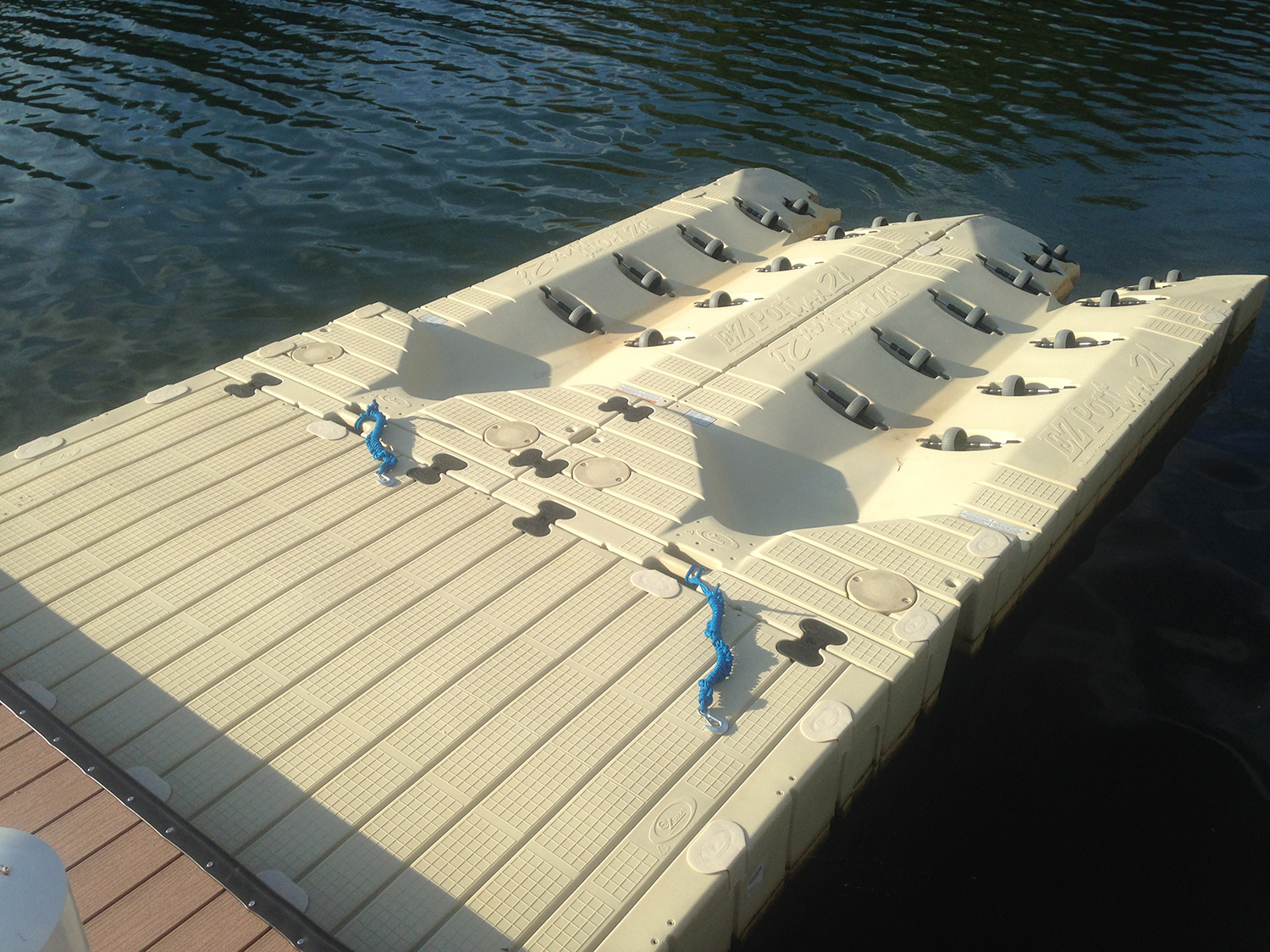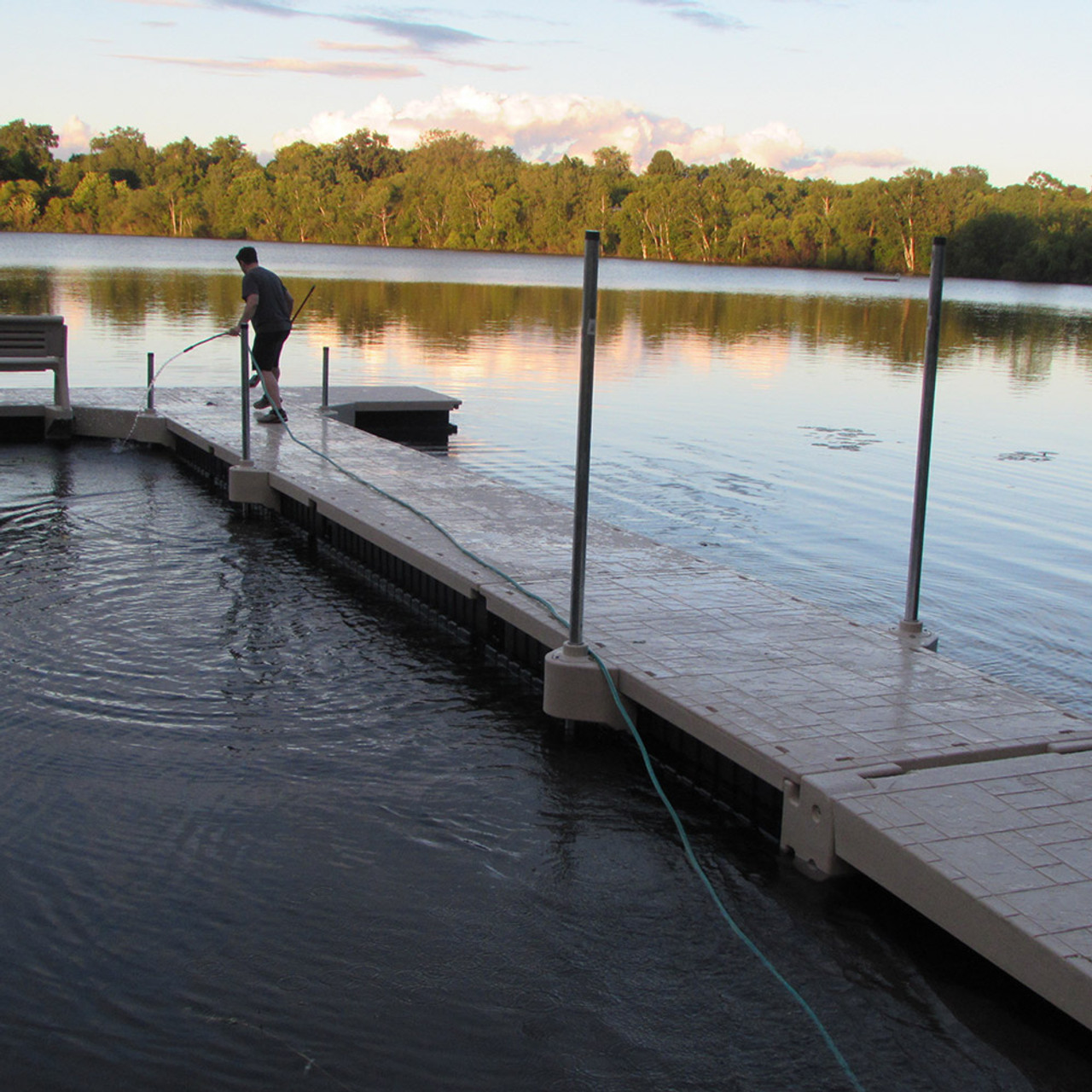The Significance of High Quality in Floating Dock Builder Choice for Resilient Docks
The Significance of High Quality in Floating Dock Builder Choice for Resilient Docks
Blog Article
The Ultimate Overview to Choosing the very best Floating Docks
Choosing the ideal floating dock calls for a detailed understanding of various components that influence both efficiency and long life. Elements such as dock types, products, and important attributes considerably influence your decision-making process.
Recognizing Floating Dock Kind
When selecting a drifting dock, it is important to comprehend the numerous types available, as each offers distinct purposes and applications. Floating docks primarily fall under 3 categories: modular, fixed, and pontoon docks.
Modular docks are composed of private sections that can be quickly constructed or reconfigured, making them perfect for altering water levels and diverse uses, such as leisure tasks or business operations. Their versatility permits for modification based on particular demands.

Pontoon docks are characterized by their resilient structure, commonly composed of several pontoons that give stability and assistance. They are particularly appropriate for bigger vessels and are typically made use of in marinas or for beachfront residential properties. Understanding these types help in picking the most proper floating dock to meet particular requirements, ensuring ideal capability and safety.
Trick Products for Sturdiness
Picking the right materials for floating docks dramatically impacts their sturdiness and long life. One of the most common materials consist of timber, plastic, steel, and composite products, each offering distinct advantages and constraints.
Timber, frequently preferred for its visual allure, calls for regular maintenance to withstand wetness and degeneration. Pressure-treated lumber can boost resistance to rot, yet it may still be prone to pests and weathering.

Plastic docks, made from high-density polyethylene (HDPE), are resistant to rust, UV radiation, and impact, making them a popular selection for seaside atmospheres. Their lightweight nature also promotes simple setup and relocation.
Steel docks, usually constructed from light weight aluminum or galvanized steel, supply extraordinary strength and durability. They are immune to rust, especially when dealt with, however may call for extra insulation to avoid warmth buildup in warm climates.
Composite materials, incorporating timber fibers and plastics, deliver the advantages of both wood and plastic, withstanding moisture and fading while calling for very little upkeep. - floating docks
Inevitably, the option of products ought to line up with environmental problems, meant usage, and maintenance choices to guarantee the floating dock remains practical and aesthetically pleasing gradually.
Important Attributes to Take Into Consideration
While the choice of products is important, considering crucial functions for floating docks is equally essential to make sure optimum efficiency and user fulfillment. One vital feature to evaluate is the dock's buoyancy capability, which figures out just how find out much weight it can support without submerging. floating docks. This is important for fitting boats, content individual watercraft, and even recreational tasks
Additionally, transportability is a considerable consideration. Depending on your needs, you might desire a dock that is very easy to take apart and carry, specifically if you intend to move it seasonally. Stability is an additional important attribute; a well-designed floating dock needs to minimize movement caused by wind and water currents, offering a secure platform for users.
Security attributes, such as non-slip surface areas and rounded edges, are also important to prevent mishaps, especially in wet conditions. Think about the accessibility of accessories, such as bumpers, cleats, and ladders, which can enhance the functionality of your dock.
Installation and Upkeep Tips
Setting up and keeping a floating dock calls for mindful preparation and focus to information to guarantee its longevity and optimum performance. Begin by choosing a suitable location that minimizes direct exposure to solid currents and waves, which can cause damage. Make certain that the water deepness is enough for the dock's height and that it is anchored securely to avoid movement.
Throughout installment, adhere to the producer's standards carefully, as inappropriate setting up can endanger security. Use high-quality products immune to deterioration, such as light weight aluminum or dealt with timber, to enhance sturdiness. Routinely evaluate all components, including floats, connectors, and securing systems, for signs of damages or wear.
Maintenance is crucial for expanding the life of your dock. Clean the surface areas occasionally to stop algae accumulation and look for any type of loose installations that may call for tightening. Guarantee they stay totally free Related Site and intact from slits if your dock makes use of flotation devices. In addition, think about applying protective finishes to wood parts to minimize weathering effects. By sticking to these installation and maintenance pointers, you can enjoy a functional and dependable floating dock for several years ahead.
Budgeting for Your Dock
Budgeting for your dock is a vital action that can significantly impact your overall contentment and financial investment in a waterfront property. Developing a clear spending plan helps you browse the numerous alternatives offered and guarantees you make notified decisions that align with your economic capabilities.
Begin by determining the dimension and layout of the dock you call for, as these elements will substantially affect the expense. Floating docks can differ dramatically in price, relying on materials, buoyancy, and attributes like accessories and ramps. Study different producers and providers to contrast rates and understand the marketplace value.
In addition to preliminary prices, think about recurring expenditures such as maintenance, insurance, and possible repair work. Assign funds for these persisting expenses to avoid shocks down the line. It's additionally prudent to spending plan for any type of required permits or inspections, which might be called for by local regulations.
Lastly, keep in mind the possible return on investment. A well-planned dock can enhance your residential property's worth and appeal, offering a favorable economic effect in the long-term. By budgeting efficiently, you can make sure that your dock fulfills your needs without endangering your monetary security.
Conclusion
In final thought, choosing the ideal floating dock necessitates a detailed assessment of numerous elements, including dock types, materials, vital functions, and installment procedures. Cautious consideration of financial restrictions will certainly additionally make sure an audio financial investment.

While the option of materials is essential, thinking about vital functions for floating docks is just as vital to ensure ideal efficiency and customer contentment.Establishing up and maintaining a drifting dock requires careful planning and focus to detail to guarantee its durability and optimal performance. Floating docks can vary dramatically in rate, depending on materials, buoyancy, and functions like devices and ramps.In verdict, selecting the excellent floating dock demands a complete analysis of various factors, including dock kinds, products, crucial features, and installment procedures.
Report this page